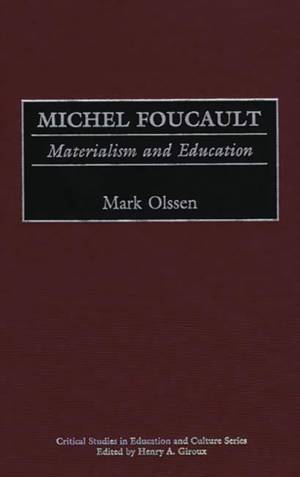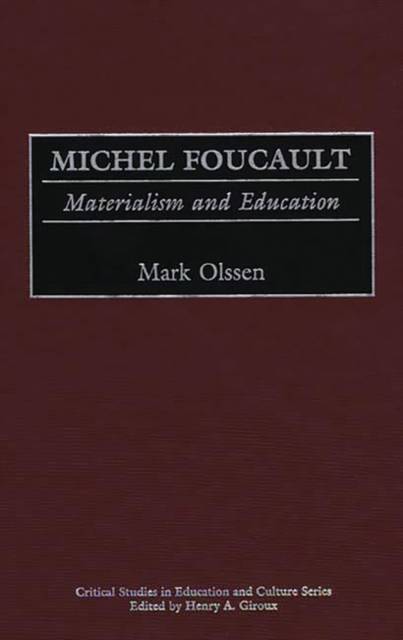
- Afhalen na 1 uur in een winkel met voorraad
- Gratis thuislevering in België vanaf € 30
- Ruim aanbod met 7 miljoen producten
- Afhalen na 1 uur in een winkel met voorraad
- Gratis thuislevering in België vanaf € 30
- Ruim aanbod met 7 miljoen producten
Omschrijving
Although Foucault departs from Marxism, his own approach constitutes a form of consistent materialism which has theoretical implications for the analysis of social and educational discursive systems. In seeking to demonstrate a correct reading of Foucault, linguistic readings of his work, such as those of Christopher Norris (1993), which represent him as part of the linguistic turn in French philosophy, where language (or representation) henceforth defines the limits of thought, will be dispelled in the process of being corrected. Rather, Foucault will be represented, as Habermas (1987) has suggested, not merely as a historicist but at the same time as a nominalist, materialist, and empiricist.
Because the distinctiveness of Foucault's approach can best be seen in contrast to other major philosophical systems and thinkers, considerable attention is given to examining Foucault's relationship to Marxism, as well as his relations to Kant, Gramsci, Habermas, and the Greeks. In relation to education, there is in Foucault's approach a double emphasis which constitutes an ordering principle for this work. On the one hand, attention is directed to discursive practices which perform an educative role in the constitution of subjects and of human forms of existence. On the other hand, forms of education are constituted and utilized for the purposes of collective ethical self-creation, a theme Foucault emphasized in his later works. The book assesses some of the more interesting recent utilizations of Foucault in educational research.Specificaties
Betrokkenen
- Auteur(s):
- Uitgeverij:
Inhoud
- Aantal bladzijden:
- 216
- Taal:
- Engels
- Reeks:
Eigenschappen
- Productcode (EAN):
- 9780897895873
- Verschijningsdatum:
- 30/07/1999
- Uitvoering:
- Hardcover
- Formaat:
- Genaaid
- Afmetingen:
- 152 mm x 229 mm
- Gewicht:
- 489 g

Alleen bij Standaard Boekhandel
Beoordelingen
We publiceren alleen reviews die voldoen aan de voorwaarden voor reviews. Bekijk onze voorwaarden voor reviews.











